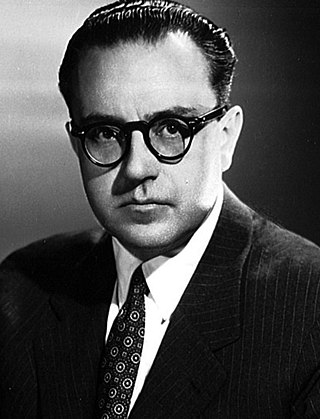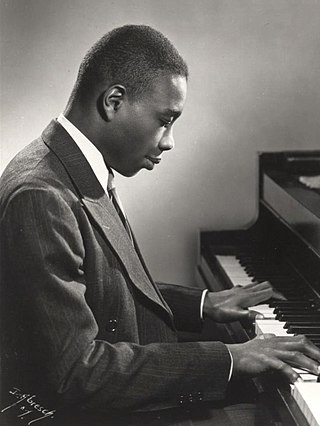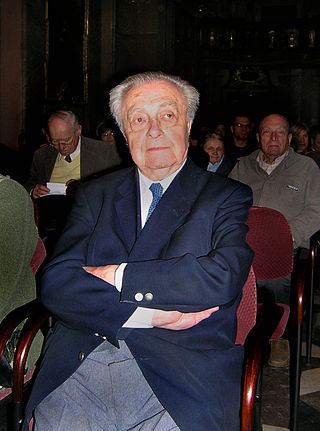
Alberto Evaristo Ginastera was an Argentine composer of classical music. He is considered to be one of the most important 20th-century classical composers of the Americas.

George Theophilus Walker was an American composer, pianist, and organist, and the first African American to win the Pulitzer Prize for Music, which he received for his work Lilacs in 1996. Walker was married to pianist and scholar Helen Walker-Hill between 1960 and 1975. Walker was the father of two sons, violinist and composer Gregory T.S. Walker and playwright Ian Walker.
Samuel Hans Adler is an American composer, conductor, author, and professor. During the course of a professional career which ranges over six decades he has served as a faculty member at both the University of Rochester's Eastman School of Music and the Juilliard School. In addition, he is credited with founding and conducting the Seventh Army Symphony Orchestra which participated in the cultural diplomacy initiatives of the United States in Germany and throughout Europe in the aftermath of World War II. Adler's musical catalogue includes over 400 published compositions. He has been honored with several awards including Germany's Order of Merit – Officer's Cross.
Arnold Atkinson Cooke was a British composer, a pupil of Paul Hindemith. He wrote a considerable amount of chamber music, including five string quartets and many instrumental sonatas, much of which is only now becoming accessible through modern recordings. Cooke also composed two operas, six symphonies and several concertos.

Ilja Hurník was a Czech composer and essayist.

Sir John Blackwood McEwen was a Scottish classical composer and educator. He was professor of harmony and composition at the Royal Academy of Music, London, from 1898 to 1924, and principal from 1924 to 1936. He was a prolific composer, but made few efforts to bring his music to the notice of the general public.

Gail Thompson Kubik was an American composer, music director, violinist, and teacher.

Hendrik Franciscus Andriessen was a Dutch composer and organist. He is remembered most of all for his improvisation at the organ and for the renewal of Catholic liturgical music in the Netherlands. Andriessen composed in a musical idiom that revealed strong French influences. He was the brother of pianist and composer Willem Andriessen and the father of the composers Jurriaan Andriessen and Louis Andriessen and of the flautist Heleen Andriessen.
David Wynne was a prolific Welsh composer, who taught for many years at Cardiff University and wrote much of his best-known music in retirement.
Ross Lee Finney Junior was an American composer who taught for many years at the University of Michigan.
Robert Frank Kurka was an American composer, who also taught and conducted his own works.
Ernst Levy was a Swiss musicologist, composer, pianist and conductor.
Gary Alan Kulesha is a Canadian composer, pianist, conductor, and educator. Since 1995, he has been Composer Advisor to the Toronto Symphony Orchestra. He has been Composer-in-Residence with the Kitchener-Waterloo Symphony (1988–1992) and the Canadian Opera Company (1993–1995). He was awarded the National Arts Centre Orchestra Composer Award in 2002.
Mark Wessel was an American pianist and composer.
Ruth Shaw Wylie was a U.S.-born composer and music educator. She described herself as “a fairly typical Midwestern composer,” pursuing musical and aesthetic excellence but not attracting much national attention: “All good and worthy creative acts do not take place in New York City,” she wrote in 1962, “although most good and worthy rewards for creative acts do emanate from there; and if we can’t all be on hand to reap these enticing rewards we can take solace in the fact that we are performing good deeds elsewhere.” She was among the many twentieth-century American composers whose work contributed to the recognition of American “serious” music as a distinct genre.
Will Gay Bottje was an American composer known for his contributions to electronic music.

Daniël Ruyneman was a Dutch composer and pianist, and inventor of the Electrophone.






